-
Understanding and Preventing Household Mold
Have you noticed a musty smell in your home or strange stains on your walls? These issues may be signs of mold growth. If you suspect that mold is growing in your home, schedule mold testing in San Francisco and check out this video clip to find out more about mold growth and how to prevent it.
Mold grows in colonies and may be a variety of different colors. It can release spores into the air that allow it to spread quickly throughout your home. Removing excess moisture from your home is essential for preventing mold growth. If mold testing reveals that mold is present in your home, it is necessary to remove all mold spores from both the surfaces and the air in your home to prevent a reoccurrence of mold issues.
-
Answers to Your Questions about Mold Testing
Excess moisture in your home can lead to mold growth, and mold can lead to a range of problems. From headaches and allergies to structural damage, mold growth is dangerous for both your health and the stability of your house. If you suspect that your home has mold growth, it may be time to schedule mold testing in San Francisco . Continue reading to learn the answers to some common questions about testing for mold.
When do I need mold testing?
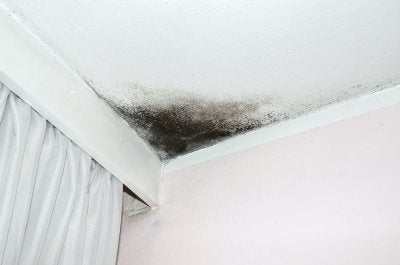
Mold testing is useful when you suspect that conditions are right for mold, but have not noticed visible signs of mold growth. For instance, if you’ve recently experienced a plumbing leak or a flood in your home, scheduling mold testing may be advisable. There are some signs of mold that you cannot see, such as a musty odor or unexplained headaches—if you notice these, arrange to have your home tested for mold. Another instance in which mold testing can be helpful is when you are buying a home; if mold is present, it will be useful to know this before you complete the home purchase.
How does mold testing work?
There are a few different methods that your mold inspection company can use to test your home for mold. One method is with air samples—with this option, a special cassette is attached to an air sampling pump, and air is pumped through the cassette, depositing any mold spores in the air onto a slide inside the cassette. This slide can then be analyzed in a laboratory for signs of mold. Surface mold testing is another option—to do this, a cotton swab can be wiped along a surface where mold growth is suspected. The swab is then analyzed to determine if mold is present. If mold growth is already visible on a surface, surface testing using a piece of sticky tape can be completed to determine the type and number of mold spores growing there.
Who should I contact for mold testing?
While do-it-yourself mold testing kits are available, they are not as reliable as professional testing, and you may end up disturbing any mold spores growing there. For these reasons, it is important to contact a reliable mold inspection company to ensure that your home is safely and effectively tested for mold.
-
What Are the Long-Term Effects of Mold Exposure?
Mold is not something that you want to find in your home, and not just because it’s unpleasant to look at. A mold problem can be hazardous to health and impact your indoor air quality in San Francisco. You might not even realize that you have been exposing yourself to mold until you develop symptoms, and in some cases, mold only reveals itself during a home remodeling project. If you want to keep yourself and your family as happy and healthy as possible in your home, make sure you take care of a mold problem as soon as it’s discovered. Please read ahead to learn about some of the long-term effects of mold exposure.
When you are exposed to mold for a long period of time, you may start to experience symptoms of this exposure. Since people are typically exposed to mold through inhalation, many of these symptoms relate to your breathing and respiratory system. Those who already suffer from asthma may notice a bigger problem, but anyone can develop symptoms. Headaches, tightness in the chest, and irritation of the skin and eyes are all potential long-term effects of mold exposure as well. Remember that infants and the elderly are particularly vulnerable.
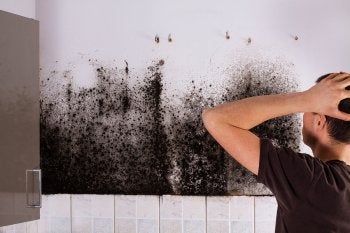
-
Questions to Ask Your Contractor About Construction Materials
Whether you’re buying a house or looking to do some home remodeling in San Francisco, it’s a good idea to talk to your contractor about the process before getting started. You should be specifically concerned with the types of construction materials that your contractor uses, as they can impact your home in a variety of different ways. Construction materials can affect your indoor air quality as well as the overall safety of your home, and they can even influence your home’s susceptibility to mold growth. Here are some questions to ask your contractor about construction materials .
How will they affect indoor air quality?
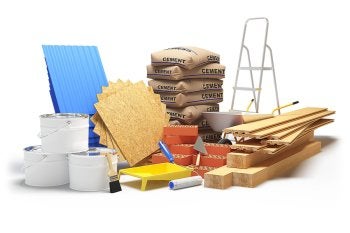
The materials that comprise your home will have an effect on the indoor air quality within your residence, so you’ll want to talk to your contractor and make sure he or she has safe materials in mind. Asbestos and lead are both harmful substances that were once popular go-to options for all kinds of construction projects. Both of these materials can take away from your indoor air quality, which can make life difficult for people who have problems with their respiratory systems. Find out what types of construction materials your contractor plans on using in advance so you can be sure they don’t contain any hazardous components.
Will my house be safe?
Construction materials that contain lead or asbestos are problematic because they can cause health complications through exposure. Too much exposure to asbestos can lead to asbestosis, which is a health problem that affects your respiratory system. Lead paint is also harmful when ingested, especially when it comes to particularly young or old people. This can cause learning disabilities and brain damage, so be sure to talk to your contractor before a home renovation product that might disturb existing asbestos or lead.
Am I at risk for mold?
Mold thrives in dark, damp places, and it can be bad for your indoor air quality as well as the health of your family. You’ll want to minimize your risk for mold growth during house remodeling so that you can maintain your indoor air quality as well as your health and comfort.
-
The Importance of Safely Removing Lead Paint
You know that testing for asbestos while renovating in San Francisco is important to remember, but what about lead paint ? Many older homes still contain lead paint, which can contaminate your indoor air quality and cause health problems for you and your family. Take a look at this video clip on the importance of safely removing lead paint.
When you start thinking about a bathroom or kitchen remodel, the many benefits will probably occupy your mind. You should also consider the dangers, however, especially if you have children in the house. Ingesting or breathing in lead can be harmful for anyone, but it’s particularly dangerous for younger children. Exposure to lead paint can lead to learning disabilities, brain damage, and problems with the nervous system. Make sure your contractor is certified, and ask the right questions so you can get your lead paint removed as safely and effectively as possible.
-
Common Air Quality Issues That Homebuyers Run Into
Buying a house is a big step to take, and you might have dreamt about it for much of your life. When you get the chance to make that dream a reality, you should do what you can to make the most of it. One of the benefits of owning your own home is being able to take on home remodeling in San Francisco whenever the need strikes, but you’ll want to take a look at your indoor air quality first. Your heating and cooling appliances also affect your indoor air quality, and so can byproducts of your appliances. Keep reading for a look at some of the common air quality issues that homebuyers run into.
Renovations
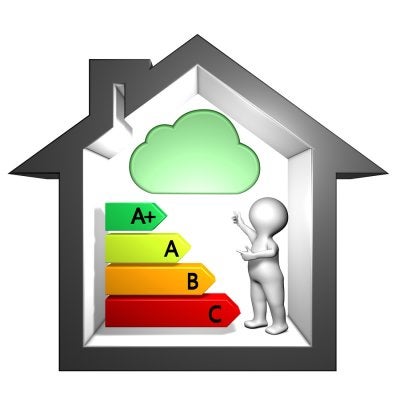
A kitchen or bathroom remodel can help you get the most out of your home as well as increase the resale value of your home if you decide you and your family want to move in the future. However, renovations can be dangerous if you have certain elements contaminating your indoor air quality. Your air quality is crucial for the health and comfort of your home, and tearing down walls that haven’t been opened up in years can bring harmful agents like asbestos or lead into the air. If you’re planning on undergoing a home renovation, be sure to talk to the air quality professionals beforehand.
HVAC Appliances
Your heating and cooling appliances keep your home comfortable throughout the year, but they can take away from your indoor air quality if you’re not careful. Mold spores are extremely light and can travel through the air, which means that your HVAC appliances can easily take them on a tour of your house. Be sure to clean your HVAC air filters on a regular basis so you can keep your air quality in top shape.
Gas and Fumes
Even cooking in your kitchen can impact your indoor air quality, so make sure your home has the ventilation it needs. A proper range hood can ensure that gas and fumes that exist as byproducts of your dinner preparation make their way outside, which keeps the family safe.
-
What Does It Mean for a Home if an Inspection Reveals Mold?
Are you planning on buying a house? If so, then checking it for mold should be considered essential. If you recently scheduled a home inspection in San Francisco , then you may be wondering what happens if the home inspector finds mold. Watch this video to learn what it can mean if the home that you’re thinking of buying comes back positive for mold.
The good news is that even bad cases of household mold can be handled. Today, the technology exists which allows mold remediation teams to perform successful mold removal in homes that have been taken over by fungus and may seem like a lost cause. If your home inspection reveals mold, then it’s important to realize that with the right treatment, the building can be restored.
-
What Happens During an Indoor Air Quality Test?
Are you planning to test your home’s air quality in San Francisco? If so, then you may be wondering about the testing process. Indoor air quality, or IAQ, testing can be used to measure several factors that could be affecting your home’s air quality. The following are some of the things that you can expect depending on the type of test being performed.
Mold Testing

When a team comes out to your home to test for mold, they will begin the process by taking either a surface or air sample or both. This initial test will provide the IAQ testing team with information about your indoor air environment and if it is conducive to mold growth. Also, the sample will alert the team to discernable levels of mold and their types, if they are present. After this testing process, if mold is identified, then you can proceed to contact a mold remediation company about its removal and abatement from your home. Following the remediation, it can be a smart decision to retest your home for mold to ensure that the removal was successful.
Asbestos Testing
Before you take on any type of home remodel, experts advise that you have you home tested for asbestos if there is any chance that the building’s materials might contain this mineral. Asbestos cannot be identified visually, and testing by a certified professional is required to determine its presence in your home. Material samples will be taken from areas of your home and sent to a lab for testing.
Bacteria Testing
Bacteria testing is often used following plumbing issues that cause sewage contamination. If bacteria testing is part of your upcoming indoor air quality test, then there are several things that you can expect from the process. First, the inspector will perform a visual inspection, and will then take surface samples to verify the absence of bacteria known to be in sewage. If the samples indicate that the sewage remediation was unsuccessful, then you will need to contact the remediator about additional cleaning.
-
Top Reasons to Schedule IAQ Testing Before Renovating Your Home
Every day, your home’s indoor air quality, or IAQ, can have a significant effect on your family’s comfort and health. However, it is particularly important to consider your IAQ before beginning any renovations. If you are planning a home renovation in San Francisco, then there are several good reasons for you to schedule indoor air quality testing before you get started.
To Address Moisture
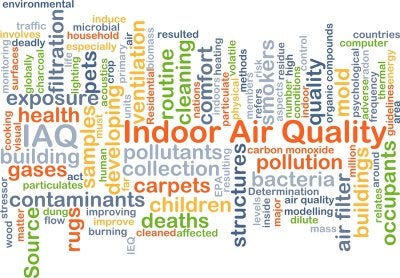
One popular home remodeling option is to convert a basement into a living space. If you are thinking about furnishing your basement, for example, then indoor air quality testing should be considered an essential part of the initial planning process. Basements are areas that are particularly vulnerable to moisture problems. If your basement is affected by high humidity or water leaks, then this can cause mold growth and attract pests into the space. Before you take on any type of remodeling project, have the air tested so that you can address any moisture problems first.
To Add Ventilation
Having a proper ventilation system is crucial for ensuring your family’s comfort and maintaining your indoor air quality. If you are planning to remodel an area of your home, then consider having an IAQ test performed first to determine how well it is ventilated. If the ventilation is lacking, then the remodeling project can provide you with an excellent opportunity to remedy the situation.
To Control Mold
Mold is a common cause of IAQ problems, and it’s not uncommon for it to grow undetected in homes until it starts causing health problems for those who live there or growing into a visible location. While mold can continue to spread on its own without much assistance, a home remodeling project can dislodge spores and allow them to spread the mold throughout your home. To help prevent turning a mold problem into a bigger one and to identify any mold problems that your home already has, consider scheduling IAQ testing before you begin your next home renovation.
-
Where Lead Could Be Lurking in Your Home
Lead is a substance that can pose a threat to your family’s health by affecting your home’s indoor air quality. For this reason, it’s important to test your home for this substance if there is any chance that it may be present, particularly before beginning projects like kitchen remodels or home renovations. When you have your home tested for the presence of lead and level of its air quality in San Francisco , there are certain locations where the inspection team might check for lead.

Homes that were built before 1978 may have lead-based paint. When you sand, tear down, or remodel walls that are covered in paint that is contaminated with lead, this can release harmful amounts of lead into the air that can cause a broad range of health issues in anyone exposed to them. Some older homes may also have plumbing that contains lead, which means that they can contaminate drinking water. If there is a chance that your home is contaminated with lead, then consider scheduling an air quality test right away.
RECENT POSTS
categories
- Uncategorized
- Lead
- Mold
- San Francisco Mold & Asbestos Removal
- Indoor Air Pollution
- Mold Remediation
- Asbestos
- Safe Air Fast
- Mold Inspection
- Remediation
- Bacteria Testing
- Asbestos Testing
- Abatement
- Lead Testing
- Sewer Line
- Lead Survey
- Mold Testing
- Air Quality Inspection
- Home renovations
- Allergies
- Renovation Contractor
- Infographic
- lead paint
- Air Quality
- Air Quality Test
- Mold removal
